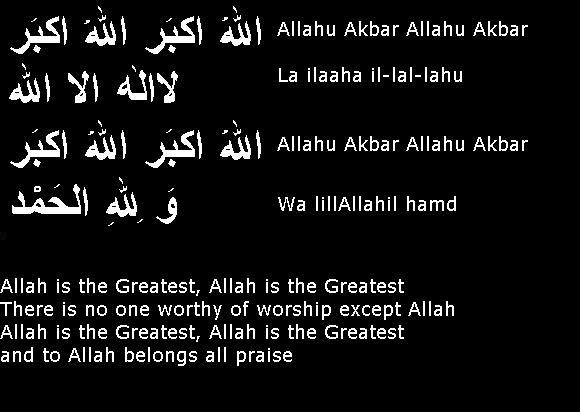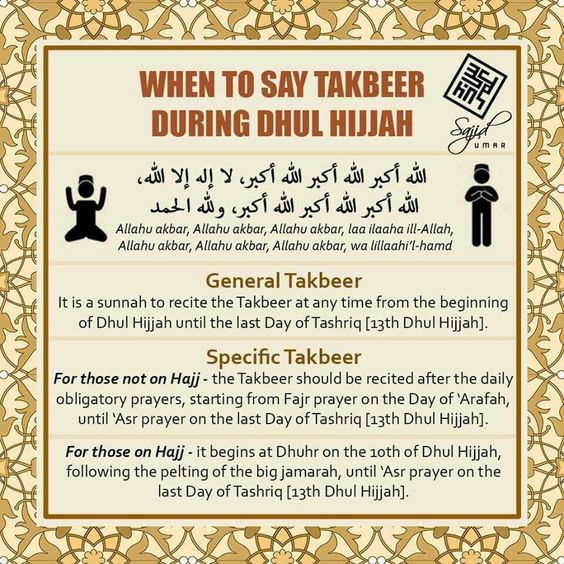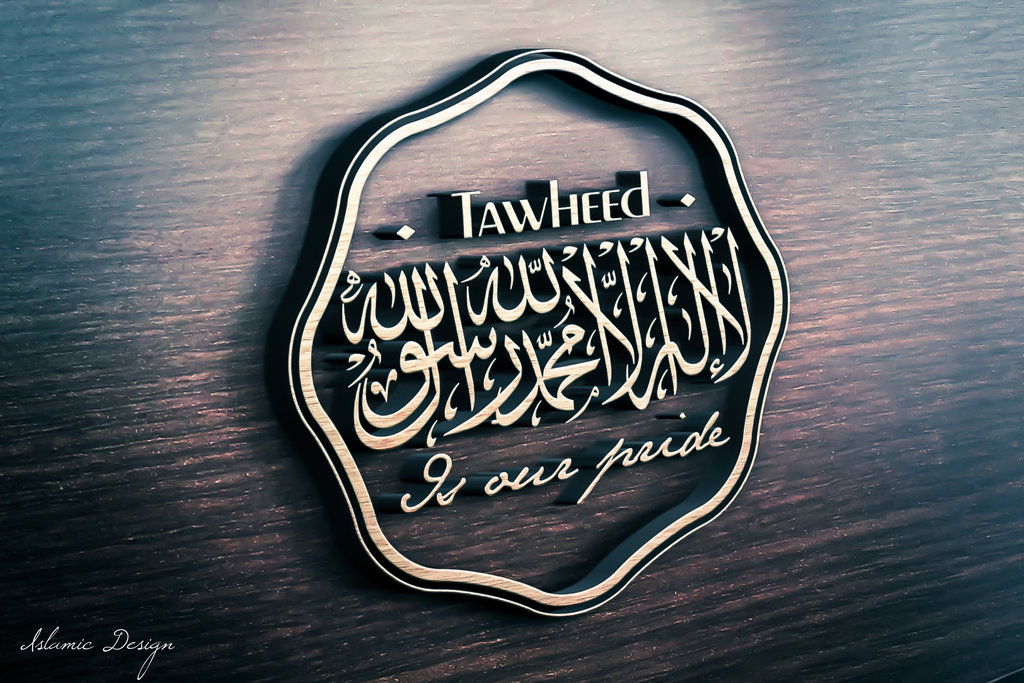بسم الله الرحمن الرحيم
Assalamu Alaikum.
Surah An-Nahl is all about the favours of Allah upon us. I had an entire post dedicated to the favours mentioned in this surah and the last tafsir gems post was also about this surah.
After I had posted the above, a sister, may Allah reward her greatly, sent me a nice little video by Shaikh Abdur Razzaq Al-Abbaad wherein he talks about this surah and mentions a blessing that I completely forgot to mention in my post!!!
What is that blessing, you ask? Well, it is the greatest blessing of Allah upon us and therefore the Surah starts with it:
أَتَىٰ أَمْرُ اللَّـهِ فَلَا تَسْتَعْجِلُوهُ ۚ سُبْحَانَهُ وَتَعَالَىٰ عَمَّا يُشْرِكُونَ
يُنَزِّلُ الْمَلَائِكَةَ بِالرُّوحِ مِنْ أَمْرِهِ عَلَىٰ مَن يَشَاءُ مِنْ عِبَادِهِ أَنْ أَنذِرُوا أَنَّهُ لَا إِلَـٰهَ إِلَّا أَنَا فَاتَّقُونِ
The Event (the Hour or the punishment of disbelievers and polytheists or the Islamic laws or commandments), ordained by Allah will come to pass, so seek not to hasten it. Glorified and Exalted be He above all that they associate as partners with Him.
He sends down the angels with inspiration of His Command to whom of His slaves He pleases (saying): “Warn mankind that Laa ilaaha illa Ana (none has the right to be worshipped but I), so fear Me (by abstaining from sins and evil deeds). [Surah An-Nahl (16) : 1-2]
The blessing?
It’s the tawheed of Allah. [Tawheed is singling out Allah in His Lordship, His worship and His Names and Attributes.]
Here’s the (must watch) video in which the Shaikh discusses this issue:
So, the greatest favour is tawheed. And of course, that’s not the only favour as this surah clearly points out.
After the mention of tawheed, Allah states:
خَلَقَ السَّمَاوَاتِ وَالْأَرْضَ بِالْحَقِّ ۚ تَعَالَىٰ عَمَّا يُشْرِكُونَ
خَلَقَ الْإِنسَانَ مِن نُّطْفَةٍ فَإِذَا هُوَ خَصِيمٌ مُّبِينٌ
He has created the heavens and the earth with truth. High be He Exalted above all they associate as partners with Him.
He has created man from Nutfah (mixed drops of male and female sexual discharge), then behold, this same (man) becomes an open opponent. [Surah An-Nahl (16) : 3-4]
Imam Ibn Kathir (rahimahullah) states in his explanation of the above two verses:
“Allah tells us about His creation of the upper realm, which is the heavens, and the lower realm, which is the earth, and everything in them. They have been created for a true purpose, not in vain, so that
﴿لِيَجْزِىَ الَّذِينَ أَسَاءُواْ بِمَا عَمِلُواْ وَيِجْزِى الَّذِينَ أَحْسَنُواْ بِالْحُسْنَى﴾
(He may requite those who do evil with that which they have done (i.e. punish them in Hell), and reward those who do good, with what is best (i.e. Paradise).) (53:31)
Then He declares Himself to be above the Shirk of those who worship others besides Him. He is independent of His creation, alone with no partner or associate. For this reason He deserves to be worshipped Alone, without partners. Then He mentions how man has been created from a Nutfah, i.e., something that is insignificant, weak and has no value – but when man becomes independent and is able to fend for himself – then he begins to dispute with his Lord, may He be exalted, and disbelieves in Him and fights His Messengers. But man was created to be a servant, not an opponent, as Allah says:
﴿وَهُوَ الَّذِى خَلَقَ مِنَ الْمَآءِ بَشَراً فَجَعَلَهُ نَسَباً وَصِهْراً وَكَانَ رَبُّكَ قَدِيراً – وَيَعْبُدُونَ مِن دُونِ اللَّهِ مَا لاَ يَنفَعُهُمْ وَلاَ يَضُرُّهُمْ وَكَانَ الْكَـفِرُ عَلَى رَبِّهِ ظَهِيراً ﴾
(And it is He Who has created man from water, and gave him descendants, and made Him kindred by marriage, and your Lord is capable (of all things). And they worship besides Allah, that which can neither profit them nor harm them; and the disbeliever is ever a helper (of Shaytan) against his Lord) (25: 54-55). And;
﴿أَوَلَمْ يَرَ الإِنسَـنُ أَنَّا خَلَقْنَـهُ مِن نُّطْفَةٍ فَإِذَا هُوَ خَصِيمٌ مٌّبِينٌ – وَضَرَبَ لَنَا مَثَلاً وَنَسِىَ خَلْقَهُ قَالَ مَن يُحىِ الْعِظَـمَ وَهِىَ رَمِيمٌ – قُلْ يُحْيِيهَا الَّذِى أَنشَأَهَآ أَوَّلَ مَرَّةٍ وَهُوَ بِكُلِّ خَلْقٍ عَلِيمٌ ﴾
(Does not man see that We have created him from Nutfah. Yet, behold he stands as an open opponent. And he puts forth for Us a parable, and forgets his own creation. He says: “Who will give life to these bones after they are rotten and have become dust” Say: “He will give life to them Who created them the first time! And He is the knower of every creature!”) (36:77-79). Imam Ahmad and Ibn Majah reported that Busr bin Jahhash said: “The Messenger of Allah spat in his palm, then he said,
«يَقُولُ اللهُ تَعَالَى: ابْنَ آدَمَ أَنَّى تُعْجِزُنِي وَقَدْ خَلَقْتُكَ مِنْ مِثْلِ هَذِهِ، حَتَّى إِذَا سَوَّيْتُكَ فَعَدَلْتُكَ مَشَيْتَ بَيْنَ بُرْدَيْكَ وَلِلْأَرْضِ مِنْكَ وَئِيدٌ، فَجَمَعْتَ وَمَنَعْتَ حَتَّى إِذَا بَلَغَتِ الْحُلْقُومَ قُلْتَ: أَتَصَدَّقُ، وَأَنَّى أَوَانُ الصَّدَقَة»
(Allah, may He be exalted, says: “O son of Adam, how could you be more powerful than I when I have created you from something like this, and when I have fashioned you perfectly and made you complete, you walk wearing your two garments and the earth makes a sound (beneath your feet). You collect money but do not give anything to anyone, then when the soul of a dying person reaches the throat, you say, `I want to give in charity’, but it is too late for charity.”)”
Subhan Allah, as Imam Ibn Kathir mentioned, we were created to be servants and not opponents.
Shaikh Abdur Razzaq Al-Abbad, at the beginning of his book on the Names of Allah, mentioned that tawheed is the purpose of creation and it is of two types:
The first type is the tawheed of marifah (knowledge) and ithbaat (affirmation). This type includes Tawheed Ar-Ruboobiyah (singling out Allah in His Lordship) and Tawheed Al-Asmaa was-Sifaat (singling out Allah in His Names and Attributes). The proof for this type of tawheed is the following verse:
اللَّـهُ الَّذِي خَلَقَ سَبْعَ سَمَاوَاتٍ وَمِنَ الْأَرْضِ مِثْلَهُنَّ يَتَنَزَّلُ الْأَمْرُ بَيْنَهُنَّ لِتَعْلَمُوا أَنَّ اللَّـهَ عَلَىٰ كُلِّ شَيْءٍ قَدِيرٌ وَأَنَّ اللَّـهَ قَدْ أَحَاطَ بِكُلِّ شَيْءٍ عِلْمًا
It is Allah Who has created seven heavens and of the earth the like thereof (i.e. seven). His Command descends between them (heavens and earth), that you may know that Allah has power over all things, and that Allah surrounds (comprehends) all things in (His) Knowledge. [Surah At-Talaq (65) : 12]
The second type is the tawheed of Al-Iraadah (intentions) and At-Talab (actions). This type is also called Tawheed Al-Ibaadah or Al-Uloohiyah (singling out Allah in His worship). The proof for this is the following verse:
وَمَا خَلَقْتُ الْجِنَّ وَالْإِنسَ إِلَّا لِيَعْبُدُونِ
“And I (Allah) created not the jinns and humans except they should worship Me (Alone).” [Surah Ad-Dhaariyaat (51) : 56]
So, we were created to both know Allah and worship Him (alone), so tawheed includes both knowledge and actions.
We’re now in the blessed month of Dhul Hijjah (its virtues were discussed in this post) and there are three statements often repeated in this month – and all of them centre around tawheed.
The first is the talbiyah, which is repeated by the pilgrims in Hajj.
عَنْ عَبْدِ اللَّهِ بْنِ عُمَرَ ـ رضى الله عنهما ـ أَنَّ تَلْبِيَةَ، رَسُولِ اللَّهِ صلى الله عليه وسلم لَبَّيْكَ اللَّهُمَّ لَبَّيْكَ، لَبَّيْكَ لاَ شَرِيكَ لَكَ لَبَّيْكَ، إِنَّ الْحَمْدَ وَالنِّعْمَةَ لَكَ وَالْمُلْكَ، لاَ شَرِيكَ لَكَ.
Narrated Abdullah ibn Umar (radiallahu anhu): The Talbiya of Allah’s Messenger (sallallahu alaihi wasallam) was : ‘Labbaika Allahumma labbaik, Labbaika la sharika Laka labbaik, Inna-l-hamda wan-nimata Laka walmulk, La sharika Lak (I respond to Your call O Allah, I respond to Your call, and I am obedient to Your orders, You have no partner, I respond to Your call All the praises and blessings are for You, All the sovereignty is for You, And You have no partners with you. [Sahih Al-Bukhari, Volume 2, Hadeeth No. 621]
The second is the takbeer of Dhul Hijjah.
One of the wordings is as follows:

It contains the tahleel (laa ilaaha illallah), the takbeer (Allahu Akbar) and the tahmeed (Alhamdulillah) – all of which are prescribed in this month.
عن ابن عمر عن النبي صلى الله عليه وسلم قال :ما من أيامٍ أعظَمُ عند الله، ولا أحَبُّ إليه من العملُ فيهنَّ مِن هذه الأيامِ العَشرِ، فأكثِروا فيهنَّ من التهليلِ والتكبيرِ والتحميدِ
Ibn Umar (radiallahu anhuma) that the Prophet (sallallahu alaihi wasallam) said: “There are no days that are greater before Allah or in which good deeds are more beloved to Him, than these ten days, so recite a great deal of tahleel (laa ilaaha illallah), takbeer (Allahu Akbar) and tahmeed (Alhamdulillah) during them.” [Musnad Ahmad, Hadeeth No. 5446. Graded “sahih” (authentic) by Shuaib Al-Arnaut.]
This is repeated for the first 13 days of this month. This post goes into more detail – a summary of which is as follows:

The third statement is the best supplication to be made on the best day i.e. the Day of Arafah. It is repeated by both the pilgrims and non-pilgrims.
عَنْ عَمْرِو بْنِ شُعَيْبٍ، عَنْ أَبِيهِ، عَنْ جَدِّهِ، أَنَّ النَّبِيَّ صلى الله عليه وسلم قَالَ : خَيْرُ الدُّعَاءِ دُعَاءُ يَوْمِ عَرَفَةَ وَخَيْرُ مَا قُلْتُ أَنَا وَالنَّبِيُّونَ مِنْ قَبْلِي لاَ إِلَهَ إِلاَّ اللَّهُ وَحْدَهُ لاَ شَرِيكَ لَهُ لَهُ الْمُلْكُ وَلَهُ الْحَمْدُ وَهُوَ عَلَى كُلِّ شَيْءٍ قَدِيرٌ
Amr ibn Shuaib narrated from his father, from his grandfather, that the Prophet (sallallahu alaihi wasallam) said: “The best of supplication is the supplication of the Day of Arafah. And the best of what I and the Prophets before me have said is: None has the right to be worshipped but Allah, Alone, without partner, to Him belongs all that exists, and to Him belongs the Praise, and He is powerful over all things. (Lā ilāha illallāh, waḥdahu lā sharīka lahu, lahul-mulku wa lahul-ḥamdu, wa huwa `alā kulli shai’in qadīr).’” [Jaami At-Tirmidhi, Hadeeth No. 3585. Graded “hasan” (good) by Al-Albani.]
As you can see, all three statements that are repeated in this blessed month are about tawheed i.e. the greatest blessing that was bestowed upon us.
Have we been grateful for this blessing and all of Allah’s innumerable favours? Remember, gratitude has three pillars:
In these blessed days and beyond, let’s ponder over Allah’s blessings, especially the greatest one, and let’s try to be grateful to Allah in the proper manner.
